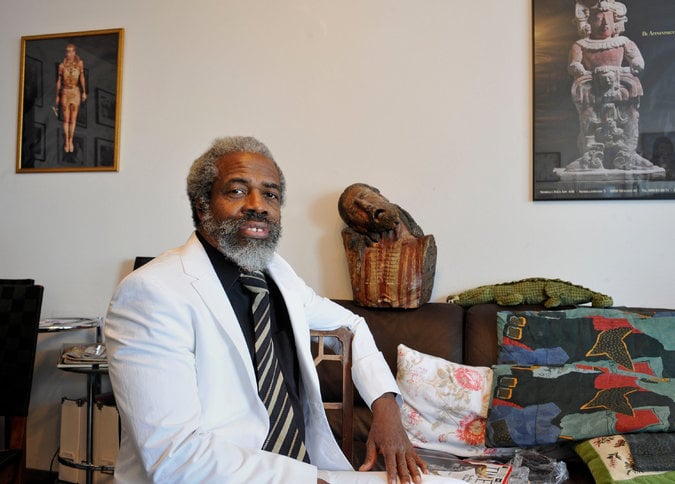
Leornardo Patterson in court in March.
Photo: Alvaro Ballesteros, courtesy La Voz de Galicia.
After years of being investigated by Interpol and law enforcement agencies in Mexico, Peru, Spain, Germany, and the US, antiquities dealer Leonardo A. Patterson has been convicted of smuggling pre-Columbian artifacts and selling fake objects.
Patterson developed his trade in New York in the 1960s by selling pre-Columbian antiquities. In 1984, he was arrested and charged with wire fraud after trying to offer a collector in Boston what appeared to be a forged Mayan fresco, according to Carl Nagin’s report in the journal Stolen Art Alert that same year. But this was just the beginning. As the Associated Press reported in 2008, Patterson has “a career checkered by charges of smuggling and selling forgeries.”
In the 1990s Patterson moved to Germany, and then conducted business in Spain and France. According to the New York Times, Patterson has avoided any serious sentencing in past cases, serving little-to-no jail time even when convicted on similar counts.
The most recent verdict, passed down by a Munich civil court in late November, sentences the 73-year-old dealer to three years home confinement and probation, and levies a $40,000 fine. The dealer is also being ordered to return two wooden statues, allegedly obtained illegally and each worth $53,000, to Mexico. In addition, his passport was confiscated, and he could spend 15 months in jail if he does not adhere to the terms of the sentencing.
An authentic wooden Olmec statue Leonardo Patterson must return to Mexico.
Photo: Bavarian State Office of Criminal Investigation.
Patterson’s collection of Aztec, Mayan and Olmec artifacts is thought to contain as many as 1,029 objects, and is valued at millions of dollars, according to Mexican officials.
Mexico is seeking the return of additional artifacts from Patterson, and Peru and Ecuador are pursuing claims of their own. Lawyer Robert A. Kugler, who is representing the state of Mexico in the proceedings, told the Times that the recent Munich decisions were “milestone verdicts.”
Leonardo A. Patterson, seen here in 2008, has been found guilty of selling fake and looted artifacts.
Photo: Uwe Lein.
Peter von Borch, Patterson’s lawyer, assured the Times that his client would be appealing the verdict: “He will never accept that incorrect judgment.”